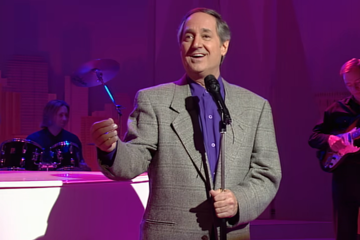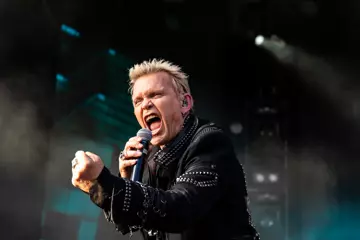I catch Kat Henry, director of Red Stitch's latest production, About Tommy, on the tram home from a successful tech run in front of the show's multitude of designers. She's stoked with how everything is going in the development of this tech-heavy show two weeks out from opening night.
Henry, working for the first time within the loving Red Stitch family, says the show, by Danish playwrite Thor Bjorn Krebs, is a challenging interrogation of the grand-scale clash between the human psyche and the realities of war. As she tells, it “follows the story of a young Danish recruit into the Danish National Brigade and his subsequent deployment to the former Yugoslavia and the conflicts they were undergoing in the 1990s. From there we see his psychological dissolution as he witnesses the atrocities that were happening with a sense of futility and inability to intervene, such is the mandate of the UN”.
“Thematically, we're looking at psychological disintegration,” she continues. “We're looking at the human effects of witnessing these atrocities and being involved in them; what that does to somebody under that kind of pressure and being very confused about what their role is.”
Henry argues that, despite this being a story about a Dane involved in a far-off war 20 years ago, About Tommy is an acutely relevant, if unusual, exploration. “I guess our position has had to come through the human empathy that we've been able to have for these characters, rather than making a certain political statement, for a few reasons: we in Australia have never had a conflict on our own soil, we don't have a first hand experience of what that's like, so we weren't going to try and pretend that we did, or take sides when it's a very complicated argument.”
Don't miss a beat with our FREE daily newsletter
It seems that the reality also remains for the team at the helm of About Tommy that we need to confront our own capacity to commit acts of genocide. “You could argue that it's a while ago now, but what we're talking about is ethnic cleansing and genocide like the Holocaust was, and the Holocaust has resulted in a massive and ongoing conversation,” Henry says.
“Obviously in other parts of the world genocide and ethnic cleansing are still occurring. It is so easy to shut our eyes, but this kind of thing is still happening: Africa is a mess, and there are pockets of conflict all over the world which are frighteningly, astonishingly easy to shut away from us.”
That's why, for Henry, the media's intervention is so integral to Western society's capacity to confront mass-scale atrocities of humanity. As opposed to the Holocaust, “in the 1990s we had the benefit of having media on the ground, so no one could say that it didn't happen,” she says. But barrelled into this opportunity for awareness is a compounded indictment on human empathy. “There are so many crises like this that've happened since the Holocaust that perhaps haven't had coverage, mainly for political reasons; they are sheltered from us. But there are, continuously, these horrific things going on, and it's the fault of media that we don't know anything about it.”
Plays like Krebs' – documentary in style, teamed with directors like Henry and companies like Red Stitch, taking advantage of theatre's multimedia opportunities, even if far-removed from the event's epicentre – remain important in their capacity to show the the effects of such devastations on human lives and minds.
WHAT: About Tommy
WHEN & WHERE: Wednesday 24 April to Saturday 25 May, Red Stitch Actors Theatre















